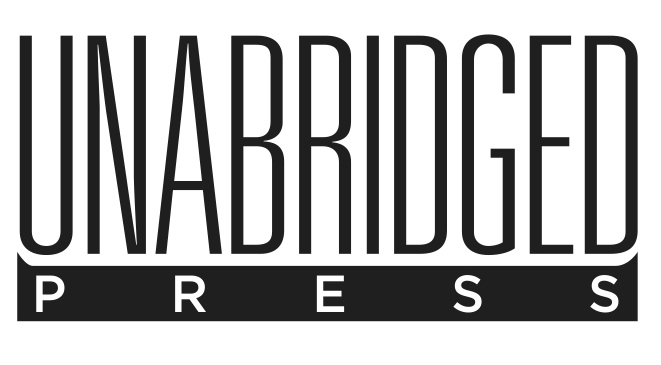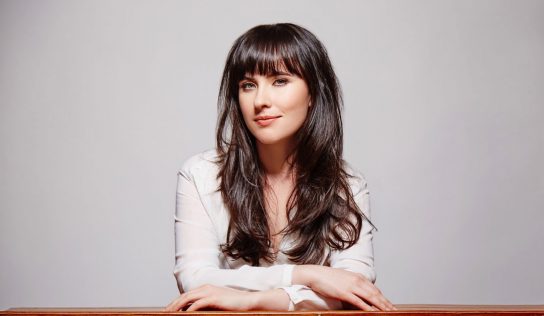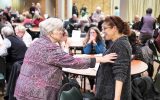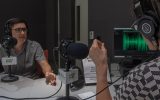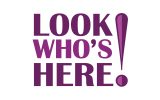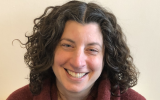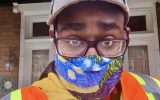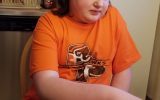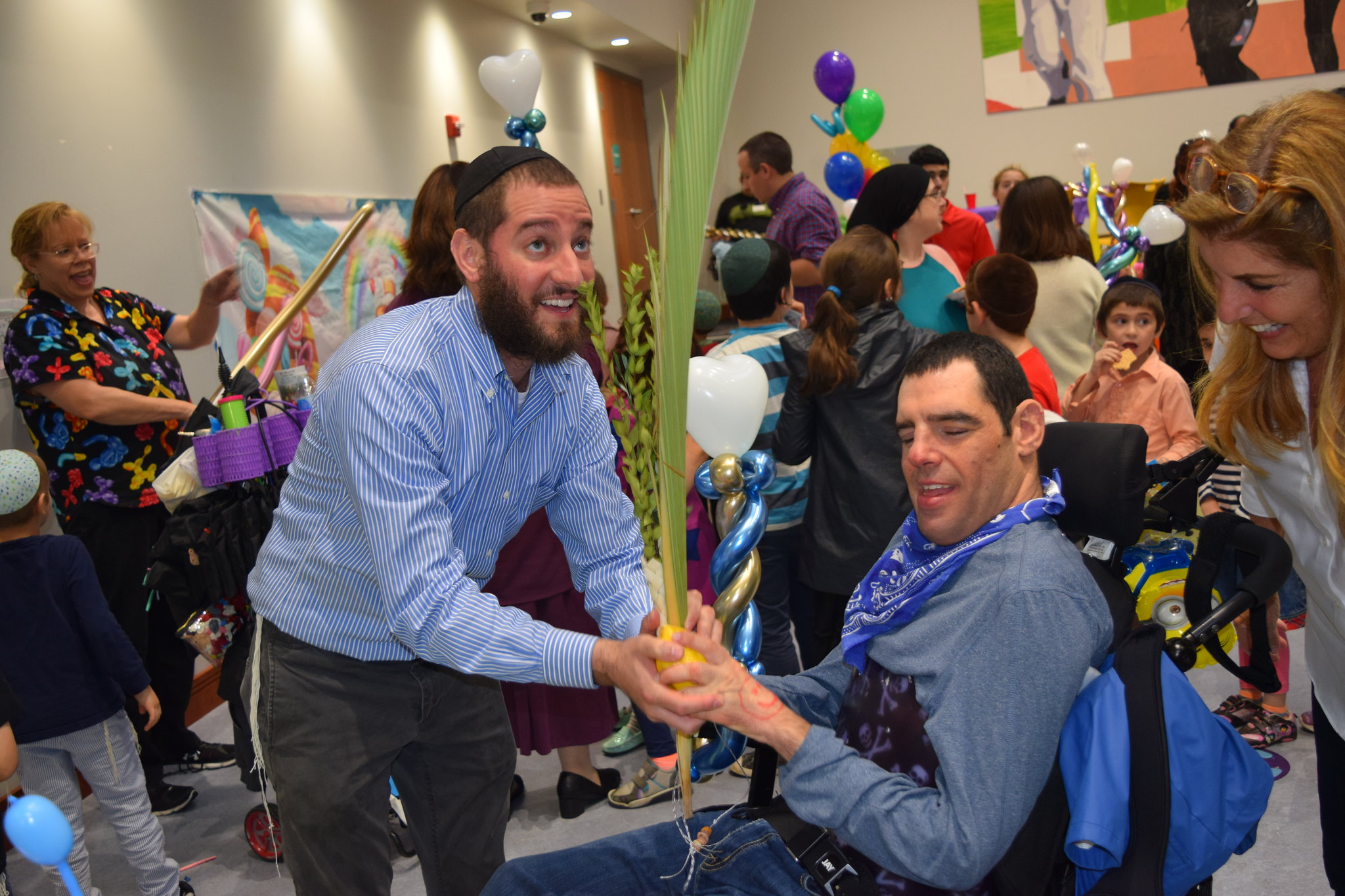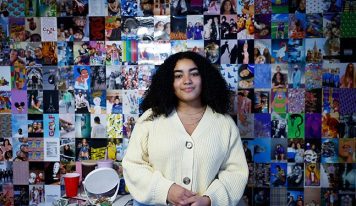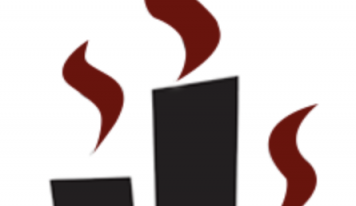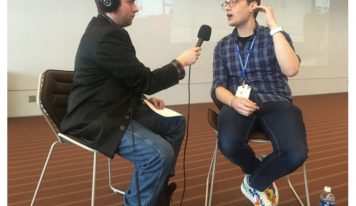After an antisemitic assassin murdered 11 worshippers at the Tree of Life synagogue in Pittsburgh, the story of Cecil and David Rosenthal spread. The brothers both had intellectual disabilities and were as much a part of the congregation and the neighborhood as anyone. The belonging they experienced is exactly what happens every day at The Friendship Circle, started by Rabbi Mordy and Rivkee Rudolph. Rabbi Rudolph answered Jim Shirley’s questions about the nonprofit, located in the same neighborhood as the shooting. Their conversation is part of the All-Abilities Media Project. The transcript, and more about the project, are below.
SHIRLEY: [00:00:00] Thanks for speaking with me today. Can you just start off by telling a little bit about yourself? [00:00:05][5.6]
RUDOLPH: [00:00:06] Sure. Thank you. Thank you for having me, Jim. So my wife Rivkee and I start– founded The Friendship Circle of Pittsburgh in 2006. We came at it from a unique perspective we like to say in that my wife was a preschool teacher at the time and I was a newly ordained rabbi. And we’re both from Pittsburgh. We have–grew up Orthodox here. And to us, there was a lot of need for a program like The Friendship Circle in Pittsburgh. It’s a model that we’d seen in other cities. We’re free to kind of it’s our own our own independent organization. But because that was the–because that was the case, it gave us the freedom to be able to do it the way we wanted to do it, essentially. And we had seen, again, seen the model, knew–known that there was a need, particularly in the Jewish community, to create programming for people with disabilities. And now The Friendship Circle extended well beyond just the Jewish community. But at the time that was the perspective we came at it from. And we founded it then…and it really was what spoke to us was was, as I was saying earlier, how it’s really about enhancing an entire community. It’s not just about helping people with disabilities, so to speak. It’s about making an entire community better, regardless of whether a person has or does not have a disability. And what was what we found, what we what we saw as the uniqueness to us was that we really didn’t have any real previous exposure to people with disabilities. It wasn’t like we grew up with a close friend or relative who had a disability that really touched us or affected us. And to us it felt like we grew up with this–the mantra of love for your fellow man and that was such a basic tenet was in Judaism. And at the same time, the people we knew growing up are really just all people who are a lot like us–certainly superficially. And so to be able to go beyond that social circle was something we felt like was was a mission of ours in a way. [00:02:13][126.6]
SHIRLEY: [00:02:14] All right. Thank you for that. Can you just describe briefly how does Judaism fit into the Squirrel Hill community? [00:02:21][7.2]
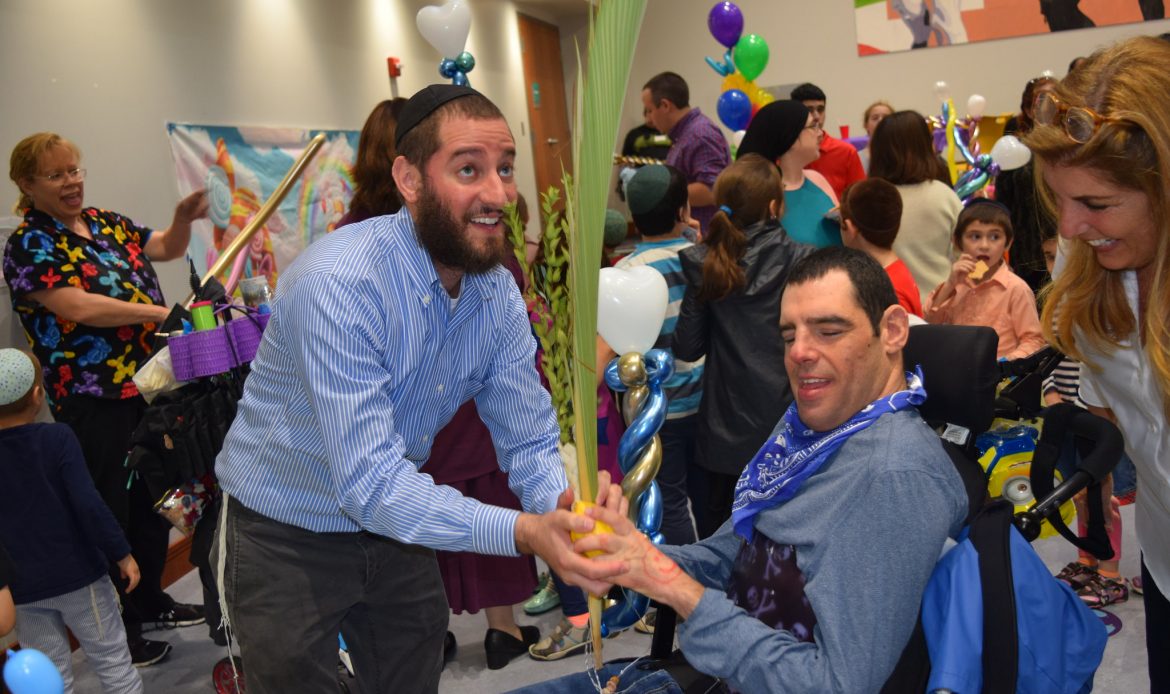
RUDOLPH: [00:02:22] It’s hard to, I guess, fully define that. But what I will say is that Squirrel Hill is just known as being the center of the Jewish community, even though in somewhat recent history the Jewish community is extended out into some of the suburbs. But regardless, the the Jewish community has always been in Squirrel Hill. It’s it’s special for a number of reasons one being that it’s it’s always been the Jewish community and even though there are other communities, whether it’s the Hill or East Liberty that have kind of gone had their ups and downs in terms of Jewish life in those those neighborhoods and communities–Squirrel Hill, it’s always been here. And the other thing that I always say is interesting about Squirrel Hill is how it doesn’t just have one denomination of Judaism that they say they say about it in general about folks with, you know, from from a certain, ah–when you talk about their financial ability that someone could grow up pretty modestly in Squirrel Hill, make millions and millions of dollars and buy a house down the street because it’s like that. And I would say so from the Jewish community perspective as well, and that someone could be Reform and then decide to become Orthodox. Or or vice versa and buy a house down the street. And it’s really not… Whereas in many other cities, the Jewish communities, oftentimes the Orthodox communities in one neighborhood and the more Reform or more secular community is in another neighborhood. You don’t find that in Pittsburgh to be the case as much. [00:04:02][100.1]
SHIRLEY: [00:04:04] Yeah, it’s special. So what opportunities are on your calendar right now at Friendship Circle? [00:04:10][6.4]
RUDOLPH: [00:04:11] I’d say every opportunity really is on the calendar. We have everything from holiday events, cooking programs, Shabbat dinners that everyone is obviously welcome to a dance club or a yoga event. We do a boys night sports league. We have bowling parties and bowling in my bowling club in the South Hills. And then we do a number of events for moms and dads, programs for moms of our members or dads of our members to get together and socialize. And then there are also opportunities for folks to understand the mission of Friendship Circle in the background of what it’s all about and realize how the way we would like to portray this is, as I say, as it as a community organization is not necessarily something that would have always been the case. And that, you know, not that long ago, people disabilities were much more marginalized than they are today. And how, yes Friendship Circle does seem like it could be a normal thing, but we have to make sure that we take those steps to ensure that it stays that way and that society has progressed a lot recently. But not that long ago, we had these kinds of state institutions and such that that we need to make sure never to go back to. [00:05:28][77.1]
SHIRLEY: [00:05:30] Right. My next question is, can you say more about how Friendship Circle specifically helps people to grow, to contribute and belong. [00:05:40][9.9]
RUDOLPH: [00:05:41] So because as I said earlier, we try to–we don’t have the model of volunteers helping kids or members or special friends, so to speak, that they do in other places and other organizations. But everyone is a member. It really allows for everyone to gain tremendously from the organization. And no one sees themselves as as as clients. No one sees themselves as projects, as cases. All things that most of us don’t want to be. We want to be able to to be contributing members of society and valued. And so because of that, it allows for people to to maximize their their experiences here and realize that that these aren’t just volunteer opportunities where you go for an hour and you help some unfortunate person, but you’re going to come here and the reason why we’re not charging you or charging your member a fee, which is a philosophy of ours, that we don’t charge anyone for any of our activities–the reason we do that is because we can’t really put a number on on the amount that you’ll gain from this experience. [00:06:47][65.7]
SHIRLEY: [00:06:48] Aright–a follow up question. Are you or your organization involved in any social action related to disability? [00:06:57][9.2]
RUDOLPH: [00:06:59] How do you mean by social action? [00:06:59][0.8]
SHIRLEY: [00:07:00] Civil rights–you know, like petitioning local government. [00:07:03][3.3]
RUDOLPH: [00:07:04] Right. So. So we don’t. I’d say we don’t necessarily get involved directly in in terms of that type of of of like lobbying or whatever. What we do do is is part of that training that I’m talking about. And giving folks the background of what Friendship Circle is about is encourage everyone to be an advocate. We do a training track to many of our teens about advocacy, about things that are near and dear to them. For many of them, it relates to disability rights, for many of them, it relates to mental health awareness. It’s just about teaching the the this next generation of teens, of young people that if there’s something that they’re passionate about, they they don’t have the luxury to sit back and just watch it. But to really get involved and do something about it to whatever degree that means, whether that means, as many of our teens were involved in the vigil right after the shooting in October, just just, you know, roll your sleeves up and do something. If you if you see a need for something, do it. [00:08:02][58.1]
SHIRLEY: [00:08:03] Now, can you tell us about the Rosenthals connection to The Friendship Circle? Maybe share an anecdote or two [00:08:09][6.5]
RUDOLPH: [00:08:11] So I didn’t really know David well. I’d met him, but I don’t really I didn’t really know him well and see. So I did. Cecil had come around to some of our programs and signed up and wanted to volunteer. And it was what was interesting was to us was how he always he always wanted to help out. And he was always very outgoing and came to some of our young adult programs, but really wanted to help more. So wanted to come to some of our programs for for kids. And I really wish I would say that that Cecil and David were more involved in Friendship Circle surely. But what was interesting was how they really didn’t need something like Friendship Circle. And they were kind of the the outliers of their day because so many of their peers, so many adults who may have had disabilities and were of the same age range would have been in an institution and would have been somewhere not involved in the community, and isolated and not having friends. And they weren’t in that at all. And they really felt a sense of belonging in our community. They were part of our community. And that was what really kind of made that was the lesson that we’d like to take, certainly as an organization from from their lives. [00:09:25][74.1]
SHIRLEY: [00:09:28] Yeah. The next question that is going to be asked related to that is how is the community here at Friendship Circle celebrated their legacy? [00:09:39][10.3]
RUDOLPH: [00:09:40] So that’s that’s a lot of it. I mean, I would say a lot of it is this sense. And there was a number of… There was an article written about it shortly after their passing about how we’ve moved from acceptance of people with disabilities into integration, into inclusion, which is kind of the common phrase used today. But we now need to move into another level which is belonging, and how it’s it’s not enough to take the action to include someone in the community whatever aspect of the community we are doing so in. But to do–to move now to the next level and making sure that everyone really feels a sense of belonging. And we’re not making special accommodations to include them, but that they naturally should–should belong. So we try to promote to our our young people as much as possible about the need for for universal design and things like that. What we’ve done this year, actually a new bit of a new initiative for us is ensuring that we have more of a presence in greater community events, because obviously, like I said, we have a number of standalone activities that we provide. But those are all a means to an end, really a means to be able to allow for our members to be part of the greater community. And at a typical Rosh Hashanah event, let’s say that happens as much as we have our own pre-Rosh Hashanah event at a typical Rosh Hashahah event or at services, we should do our best. And obviously we’d like to think that we’ve we’ve made some inroads in this–but to make sure that everyone’s welcome all throughout the community and not just welcome, but really, truly belongs. [00:11:11][90.9]
SHIRLEY: [00:11:13] Thank you. And how did Jews include people with disabilities in general, and why is this important to Jews? And could you speak about autism specifically? [00:11:26][13.3]
RUDOLPH: [00:11:29] I’d say it’s hard to specifically delineate autism, but I’ll speak about–well, I’ll share one anecdote on autism and relating to people with disabilities. People with disabilities should and could be included completely within the Jewish community. And the idea of of of inclusion in general, of of a committee of a community, the idea of a congregation, which is really what the importance of what a Jewish community is. And when we talk about conversion, for example, a large part of conversion is living within a Jewish community. You know, the rituals are important, but the community aspect, an element of what of what of what Judaism is is of just tremendous importance. So if we’re going to be a community, a community needs to be inclusive and needs to make sure that that we make room not not not even make room, that we are available and that we are open and that we include those regardless of their of their differences or disabilities. I will say that I saw a clip of a bit of an interview and it wasn’t quite an interview it was an interaction between a parent and of a child with autism and …Sharabi (name unconfirmed) And … Sharabi’s a mentor of mine and was a lot of the inspiration for the founding of Friendship Circle. And the interaction with these parents who came to the rabbi and asked for a blessing for their son who has autism. And the rabbi’s response was that perhaps how he interacts with his peers may be different and may be something that’s, you know, it it it obviously causes these differences, which is what you know, which is what we know, what you may call autism. But regarding how he interacts with God almighty, that is not that there is no difference. And so, therefore, we need to ensure that he has that that he is treated as such and he is a part of the community as such. [00:13:31][121.9]
SHIRLEY: [00:13:32] This year’s marking the 30th anniversary of the Americans with Disabilities Act. And what does that read for you here at Friendship Circle? [00:13:43][10.9]
RUDOLPH: [00:13:45] The 30th year or the American American with Disabilities Act in general. [00:13:48][2.6]
SHIRLEY: [00:13:49] Like this is a landmark. Yeah. Thirty years. What has that meant for you? [00:13:53][4.0]
RUDOLPH: [00:13:53] So first of all, I’ll say that it feels like 25th year was yesterday. So it means the time is flying. That’s that’s number one. But number two is really this is a lot of what we’ve been taking some time to study has been how the impact that something like the ADA has had on society stemmed largely from the history of wars and veterans and how you had people who didn’t–didn’t necessarily know what it was like to have a disability and suddenly they came back from a war and they did. And that, in turn, caused them to stand up for themselves and say, no, I’m not going to not go into that restaurant anymore because there is no wheelchair ramp. I’m gonna figure out how to get in there. Those were the stories that led to the ADA. So for us, what it means is that that that the mandate, if you will, of not resting on our laurels and not saying, ‘Oh, we’ll just because we do something a certain way, you know…’ For many families, for example, who have a child with a disability or for someone who himself or herself has a disability, you kind of resort to ‘Well, this is just how it is and what we have to realize is that if that person would have known that they–he or she would be accepted in these circles and suddenly the change this this this shocking change happens that now suddenly you’re no longer accepted in this setting, they would have never been OK with it. But because sometimes it’s just ‘This is this is just the way it always has been and the way it always will be,’ they they they resort to that. But what we have to realize certainly to us as an organization is that everyone who who who is given the opportunity to belong, we would like to do so. They just sometimes aren’t–aren’t aren’t familiar with it, and that’s that’s our fault, our collective fault as a community. So we need to do our best to make sure it’s not the case. [00:15:54][121.3]
SHIRLEY: [00:15:56] What are your aspirations for greater inclusion at Friendship Circle and beyond Friendship Circle? [00:16:05][8.8]
RUDOLPH: [00:16:07] When I spoke recently to someone who asked me who was a very data-driven organization he’s part of. It’s a foundation and we were discussing potential funding and he said, what is your saturation point as an organization? If it were about involving people with disabilities, in Friendship Circle I could say, ‘You know, they’re X amount of people wotj disabilities in the community. And I want this percentage of them to be part of Friendship Circle.’ But that’s really not what it’s about. As much as that number grows, as much as our membership does grow and our programs grow. It’s really about ensuring that the entire community becomes more inclusive. And I had the pleasure of several months ago of being out for lunch where a mom came up to me and said how she has a son who has a disability and is no longer a current member at Friendship Circle. He had been several years ago, but is no longer part of Friendship Circle. And she said, ‘I have to tell you that what you’re doing in this community has been absolutely tremendous for my son.’ And she said, ‘Yeah, I know he doesn’t come to programs and he’s not as involved,’ she said, ‘but the way that young people look at him is totally different than they used to.’ And to me, that’s a realization of what our mission is all about. So it’s about the community as a whole being a more inclusive and a better one. And it’s it’s really hard to say … at what point we say, OK, we’ve done it because there’s always just so much more to do. [00:17:35][87.7]
SHIRLEY: [00:17:36] Okay. Thank you. Before I close the interview, I just want to make a comment of my own–you can respond if you want. But last year when I started my conversion to Judaism, as well as getting involved with the autism community, I found this Web site called realsocialskills.org And it has a lot of articles about interacting with people who are disabled, particularly autistic. And it also had a number of articles about Judaism and Jewish culture. And I just thought that was interesting. There was that intersection of Judaism and autism. And yet it seems from my reading of the Old Testament, the Jews would, like, take care to protect those with disabilities, like ‘Curse, like the one who puts a stumbling block for the blind…’ You know, from recent history of the Holocaust, my understanding is that disabled people were placed in the camps alongside Jews. Seems to me that connection, both Biblically and historically that Jews have had with disabled people… [00:18:54][78.0]
RUDOLPH: [00:18:55] There is definitely that unfortunate–for better or for worse, when there are marginalized populations. The Jews end up being part of them. And that’s there’s definitely a familiarity with that. [00:19:04][9.2]
SHIRLEY: [00:19:05] OK. Well, this has been Jim Shirley here at Friendship Circle with Rabbi Rudolph. And yeah, thank you for your time. [00:19:15][10.4]
RUDOLPH: [00:19:16] Thank you. [00:19:16][0.0]
THE ALL-ABILITIES MEDIA PROJECT AT THE CENTER FOR MEDIA INNOVATION AT POINT PARK UNIVERSITY IN DOWNTOWN PITTSBURGH AND UNABRIDGED PRESS PROVIDE MEDIA WORKSHOP EDUCATION, EVENTS, AND PROFESSIONAL PRODUCTION OPPORTUNITIES. THIS WORK IS FUNDED IN PART BY THE FISA FOUNDATION
